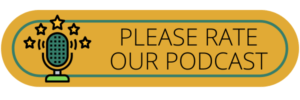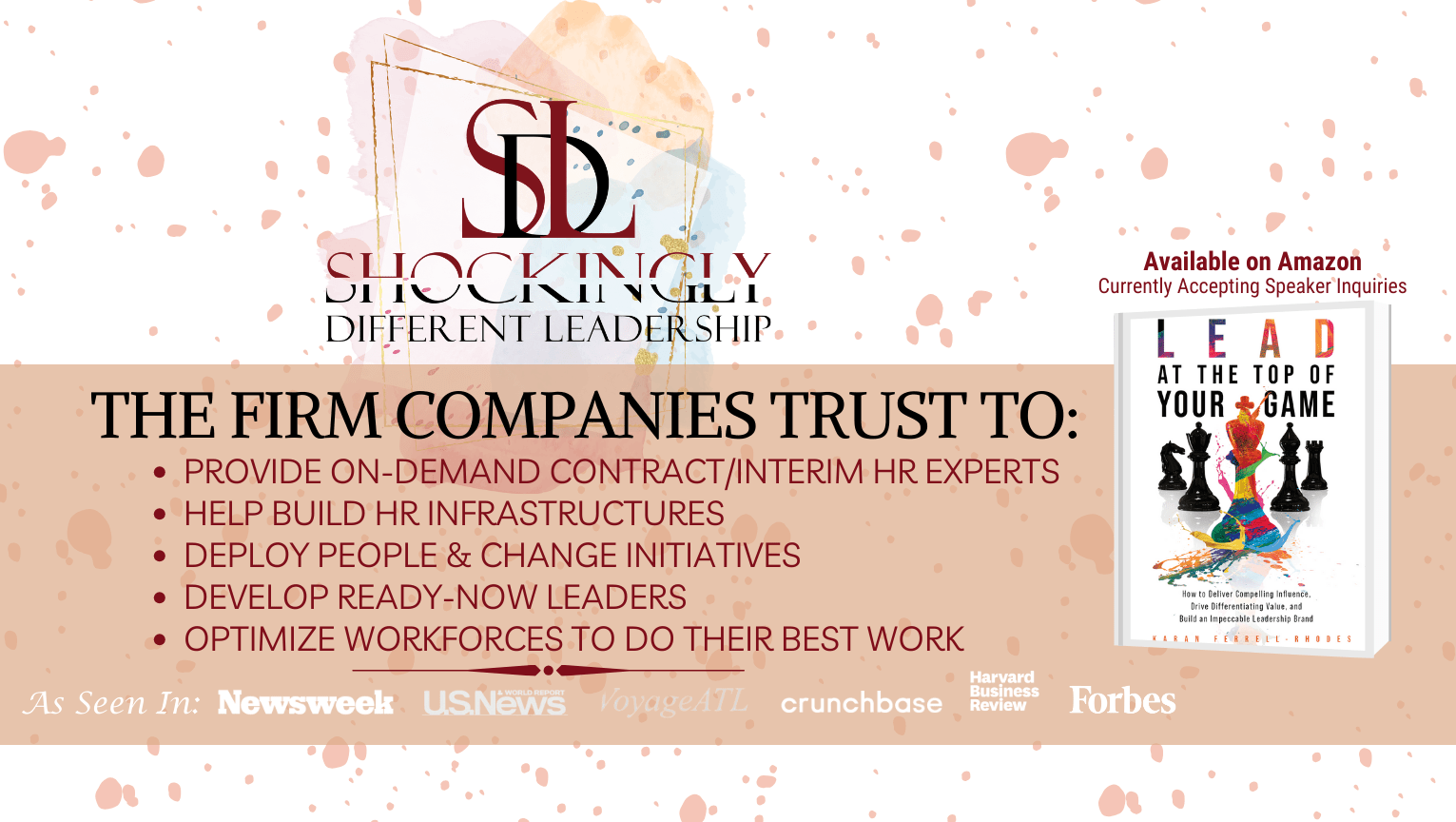IN THIS EPISODE, KARAN FERRELL-RHODES INTERVIEWS CATHERINE FITZGERALD.
Scaling businesses can significantly impact personal life as leaders navigate the complexities of growth. This often requires a delicate balance between professional responsibilities and individual well-being, highlighting the importance of connectivity between the two realms.
Catherine Fitzgerald is the visionary founder of Brass Tacks with Heart Business Advising, whose coaching goes beyond mere business strategy, delving into personal fulfillment and work-life balance. With a background as a master “doer” and “achiever,” she intimately understands the journey from relentless action to purposeful leadership. Catherine’s ultimate goal is to equip her clients with the tools and mindset necessary to lead authentically, achieve sustainable growth, and create a business that aligns with their vision for a fulfilling life.
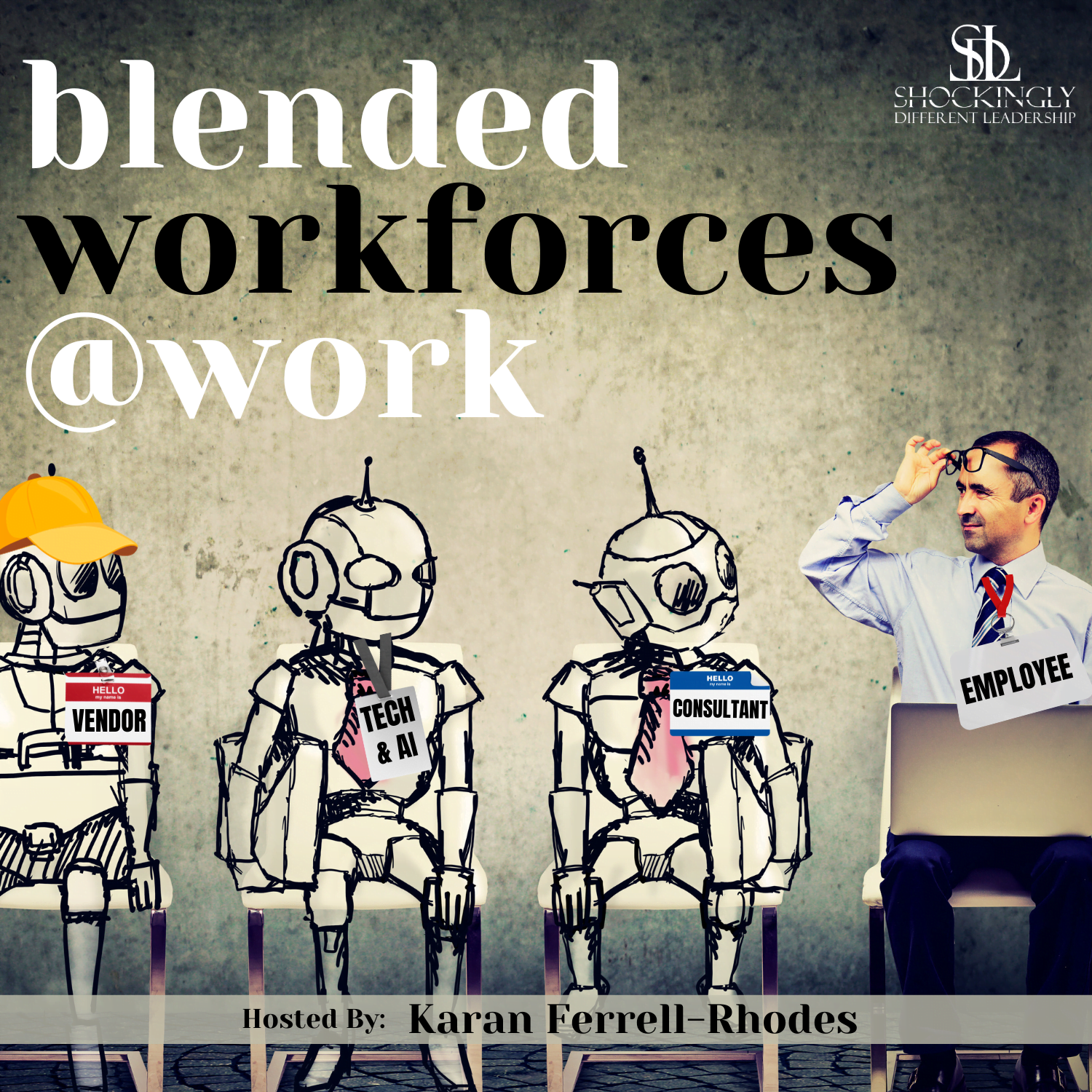
Posted by
SDL Media Team
Rather view our video podcast?

WHAT TO LISTEN FOR:
- What are some examples of challenges in blending workforces?
- Why is implementing blended workforces considered crucial for business growth?
- How can scaling businesses affect personal life?
- What are some strategies for success in blending workforces?
- When does financial literacy play a vital role in empowering employees?
“If you are not proactive in developing your culture, you become a victim of your culture.”
FEATURED TIMESTAMPS:
[02:53] Catherine’s Life’s Adventures
[05:03] Entrepreneurial Growth with Brass Tacks
[10:06] Scaling Success
[12:47] Growth and Cultural Alignment with Blended Workforces
[17:58] Strategic Integration: Team Ownership and Communication in Change Management
[20:56] Signature Segment: Catherine’s entry into the LATTOYG Playbook: Leading with Heart, Empathy, and Experience
[26:12] Demystifying Finances with Heart and Insight
[29:07] Signature Segment: Catherine’s LATTOYG Tactics of Choice: Leading with Intrapreneurship

ABOUT CATHERINE FITZGERALD:
Catherine Fitzgerald is a seasoned executive and coach-consultant who empathizes deeply with the challenges founders, CEOs, and executives face. Drawing from her own experiences as a CEO, Catherine understands the overwhelming pressure and perpetual sense of responsibility that often accompany leadership roles. She specializes in guiding individuals burdened by the weight of their team’s performance, struggling to delegate effectively, and perpetually tethered to their business.
Through her “Brass Tacks with Heart” approach, Catherine offers a unique blend of strategic insight and empathetic support. She helps clients reclaim their time, regain clarity about their priorities, and transform stress and chaos into calm confidence. Catherine’s mission is to empower leaders to step into their visionary roles while ensuring that their businesses succeed and enrich their lives rather than consume them.
LINKS FOR CATHERINE:
- Website: brasstackswithheart.com/
- LinkedIn: linkedin.com/in/catherine-a-fitzgerald/
- Twitter: twitter.com/BrassTacs_Heart
- Instagram: instagram.com/brasstackswithheart
ADDITIONAL RESOURCES FOR YOU:


Episode Sponsor
SDL is the go-to firm companies trust when needing to:
- supplement their in-house HR teams with contract or interim HR experts
- implement leadership development programs that demonstrate an immediate ROI and impact on the business

Episode 7 | Scaling High Growth With Brass Tacks and Heart with Catherine Fitzgerald
Catherine Fitzerald 00:01
Being in business for yourself is like building a plane while you’re flying it. And you get to that point where you’ve got altitude, and you’ve been doing everything. And now you need to you recognize that what got you here is not going to get you where you really need to go or want to go.
Karan Rhodes 00:01
Blending workforces are one of the hottest talent strategies today, where employers are using a mix of traditional employees with external resources like independent contractors, coaches, consultants, vendors, and technology solutions, all in order to enhance competitiveness, ensure cost flexibility, and expedite business goals. But how are the successful companies infusing blended workforces into their business strategy? And what are the critical success factors and pitfalls to avoid during implementation? And on the flip side, what does it really take for suppliers to improve their chances of finding and landing contract opportunities? The devil is in the details, my friends! I’m your host, Karan Ferrell Rhodes, and it’s time to get smarter about Blended Workforces at Work! Hello, my dear superstars, this is Karan and welcome to another episode of The Blended Workforces at Work podcast. I am just super thrilled to have today a dynamo guest and as you will soon see, we have on today’s show, Miss Catherine Fitzgerald, who is the founder of Brass Tacks with Heart Business Advising. It is a firm which specializes in guiding heart centered founders, and CEOs of successful companies that are experiencing high growth through the challenges of scaling their businesses. And you now know that we’re all about really helping to understand deeper, more about blended workforces, and how they’re used to help businesses scale. So if I’m sure Catherine has a ton of fantastic thoughts and ideas and perspectives for us, and that is why I am so honored that she accepted our invitation to be on the show. So welcome to the show, Catherine.
Catherine Fitzerald 01:52
Oh, Karan, thank you so much. I am so grateful that you’re our lives intersected and this opportunity came to be because it’s been a delight to get to know you and to understand more about the podcast. So thank you.
Karan Rhodes 02:06
Ahh! Thank you so much. And so those of you who listen to us, you know, I’m a chatterbox. And I had a chance to meet with Catherine ahead of this episode. And I truly feel like she’s a sister from another mother. We connected on so many levels, as you’ll soon see, so
Catherine Fitzerald 02:23
Likewise.
Karan Rhodes 02:25
Well, Catherine, before we get started, we always love to learn a little bit about our guests. So for as much as you feel comfortable, can you share just a sneak peek about your life outside of the world of work?
Catherine Fitzerald 02:38
Oh, yeah, absolutely. I am the proud mama of three grown sons, who I, you know, lovingly say, are off the dole. They’re all employed.
Karan Rhodes 02:51
Yay!
Catherine Fitzerald 02:51
You know, I miss him terribly. I miss those years of active mothering. But I am so so proud. And my, my primary responsibility these days is caring for my 87 year old mom, who is living in an assisted living, but formally was with me for a few years. And my joy in my life is my other half Lee Parker and I have great adventures together. He is a an adventure seeker. So I do a lot more extreme things than I ever thought I would be doing at my age, like snowmobiling, and electric mountain biking and all kinds of stuff. So he keeps me young.
Karan Rhodes 03:33
What we do for love
Catherine Fitzerald 03:34
That’s right, that’s right. But you know, you get to the top of an 11,000 foot mountain by, you know, on a snowmobile and look around, and it’s just breathtaking. There’s no camera that will ever capture that feeling. And I always feel like I want my whole tribe here. I want everybody to see this. It’s so amazing. And you realize, well, that’s probably not ever gonna happen. So pictures will have to do. Yea, yea,
Karan Rhodes 03:59
That is amazing. Well, wonderful. Well, thanks so much for sharing. And he sounds fantastic guy.
Catherine Fitzerald 04:06
He’s a keeper. To me. I also love to cook that’s probably why it’s keeping me
Karan Rhodes 04:15
I do too! I love the cook and sports. And when we were dating, my husband said it was hard to find that all that wrapped up in one lady and you hit it. Absolutely. Well, Oh, Catherine, let’s start out by helping our audience understand a little bit more about what brass tacks with heart really does. He says we want to make sure we express the value that you all are providing to so many great companies in the world of work.
Catherine Fitzerald 04:48
Absolutely. Well, thank you. It’s my pleasure. Uh, you know, it was born out of my heart, for sure. And mostly in my passion to be in a position to help people because As of my experience as a an, an emerging leader and an executive that was selected because I was really good at my job, and not necessarily because I was really great with people. And, well, you know, I was in my 20s. And it was a whole new world. And my interpretation of my first promotion from customer service rep to regional sales manager in one jump in 18 months was an eye opening experience. And, you know, I look back on it now, and kind of, I probably didn’t do that as well as I could. But you know, space and grace, as they say, I learned a lot. And so I have a real heart for people who are building a business, especially that particular job I did for nine years. And it was a its own profit center. And so it was I had to buy every stick of furniture, and I paid the rent and everybody’s expenses, etc. And so it was like being in business for myself. And it was an incredible learning curve and learning opportunity. And then I had several other opportunities of leadership, including CEOs and position of CEO, Executive Director and vice president at a bank or regional bank. And so I in all of those roles, I was always an overachiever, but also had people. And I recognize that there was a big gap in my education, as you know, I graduated from UCLA, but I was an English major. And so everybody in the world says to me, Oh, are you going to be a teacher? Are you going to be a teacher? Like, no, not really. That’s not really my thing. But uh, you know, in some ways I am teaching and sharing in a role. But my goal in life in terms of where I ended up, I was in insurance, I was in in banking, I was in, you know, lots of financial areas. And I recognized there was a huge gap in our education system regarding financial literacy. So when I started to work in the coaching arena, I was trained on a program that is open book management, where they teach everybody in the company, how the money flows through the business, and as a way to empower them to make winning decisions. And I think that’s a beautiful model. And I think it’s a great program. It didn’t work out well for me, because it was very systematic. And that is not utilizing really what I bring to the table in terms of my business advising and coaching coach, salting as I call it, because it’s kind of a hybrid. And so really, brass tacks became an opportunity for me to connect with people who are living that entrepreneurial dream, building their businesses and getting them to a certain point where the plane is in the air as and I loved that you and I both share that, you know, being in business for yourself is like building a plane while you’re flying it. And you get to that point where you’ve got altitude, and you’ve been doing everything. And now you need to you recognize that what got you here is not going to get you where you really need to go or want to go. And so in that process, you have to bring on a team that’s capable, and empower them to lead from their position. And creating that whole process is quite staggering. And if you haven’t done it before, it can be really, you know, scary. And so that’s really where I focus, I try to help founders and CEOs who are growing their businesses to get through those stressful moments where every decision could be a make or break, and then get them to the point where they are living the life that is really fueling their, their dreams and not draining them.
Karan Rhodes 08:48
And as your coachsulting though. Hopefully I got that right. I love it’s a mix of coaching and consulting. Which you’re right, especially at that level for CEOs and founders of businesses, they need a little bit of both sometimes to kind of break through to to better handle the challenges that they’re facing. On specifically as it relates to scaling. Do they? How do you help them think about that new mindset? Because there is one mindset when as you know, when you’re, you’re launching and solidifying your business and the expertise and the products and services you’re bringing to the world. But once you’re established and you’re moving into higher growth and needing to scale, how do you help them prepare or think through this whole new arena? Because many of them may not have had that kind of experience in the past?
Catherine Fitzerald 09:51
Well, there’s several, you know, areas that are impacted when you’re going to scale your business and so we start to really look at that those areas and I have a, you know, a basic framework that we go through. And look at that, you know, the financial aspect, the people aspect, the systems, the processes, the operations, the, what I found is a lot of entrepreneurs are successful because they have a dream and they have a drive, and they they’re going to get to that dream, sometimes the, the details of the mechanisms within the business are not really fleshed out all the way. And they’ve gotten to this level of success. And in order to go to the next one, they have to really change the way they do business, because there’s liability built into not doing it. And so we work with, you know, all aspects of the growth and figure out what order makes sense to make those changes and create goals around, you know, what they want to see, and by when, and then we pick maybe the top two or three things, and we, we go through those together. And then, you know, at the end of that, then we’ll pick the next three things and kind of move along. So it’s a long process. And it’s not a quick fix, but the transformation goal is very clear. And that is that they are going to get to the point where all of these, all the structure is there. And they’re not, as I like to say, drinking from a firehose every day. Right, and they’re able to enjoy the benefits of building this business, as well as you know, to watch others flourish and grow as well. And, and that’s where the heart part comes in. For me, as I you know, when I work with someone, I want to know that their heart is not just about the money, or not just about their own success, but really looking at their company and the people that have helped them build that business and recognizing that as a team, and they value them. And when you meet someone like that, you just know it, and it works so beautifully.
Karan Rhodes 12:03
You’re so right, let’s drill down into maybe the people on the operation side is some of the businesses, I think that gets close to our topic of the podcast. And so my question with you, let’s start by let me ask you, in your opinion, what is what can be the power of implementing blended workforces into a business? And what are one or two challenges that can make them hard to implement?
Catherine Fitzerald 12:32
Okay, those are great questions. I’m going to I’m going to back up just a little bit and say that when we do the financial analysis of the business, and when I say financial analysis is like looking at what are your direct costs? And what are your indirect costs? And where is your profit margin? And where do you need it to be to be sustainable? And to then to be in high growth? What do we need? And so in looking at that, you know, the people equation comes in right front and center. And so we start to look at what makes sense from a growth strategy. As far as blended workforces go, and where we need growth, where are the weakest links? Where are the areas that that need to be shored up and what is the solution, so it may be to outsource your financials, it may not be May, about, you know, leadership and or getting a fractional HR person or, you know, we kind of look and identify where those roles can be blended in. So then to address the second part of your question, in terms of where, what is the danger, danger? And, and, or where is the and of course, I’m going to share my age here. Because when I say that I’m thinking immediately, the robot and lost its face danger. And half our audience won’t know what that is so good. So I think that we’re about, you know, running out in front of the business a little bit and seeing where those pitfalls are. And I think my experience and and also, the fact that I been in business myself, I can feel those, those internal growing pains and kind of address those from that standpoint. But then we look at what is the culture, one of the things that I loved a quote, and I have no idea who said this, but I thought it was brilliant, and that is that if you are not proactive in developing your culture, you become a victim of your culture. Oh, wow. And I think that analyzing the team culture, looking at it, really seeing, you know, the mindset of the team, and recognizing that incorporating them in the process of scaling and understanding that their ability to look at things from where they sit has value. And if we can’t harness that wisdom And then we’re kind of starting with less than the intelligent data that we need to make good decisions as we grow. And so bringing that team together, being purposeful about the culture, and then making sure that whoever you hire has a values match in whether that’s a fractional person, or an employee, because value systems drive, the actions that the team takes and where they what they do in the moment. And you can teach anybody a skill, or a technical way of doing things a process, but you can’t teach values. So when you hire for values, you’re, you have a much greater ability to predict a positive outcome.
Karan Rhodes 15:51
So let me tell you, what I love about that is I’m a voracious reader. And I have, you know, read a ton of, you know, research reports and articles, you know, always on the topic, because I tried to curate some of the best data out there. And one of the many research studies read, I can’t remember if it’s like Gartner or something like that, but I Excuse me, I don’t know this, I have the source top of mind. But what you’re spot on one of the biggest roadblocks for blended workforces to work successfully is around the cultures and values piece. And particularly around culture, a lot of companies they cite, a lot of companies don’t do a great job in preparing their traditional staff, with the incoming of external talent coming in to work with them. And they also don’t sometimes do a good job and onboarding, external talent, and SAS and shoot in the onboarding them in a way that culture is emphasized. So they have insights on how to best work together with the traditional teams that are in place. And I’m just curious, if you agree, poke hold that article, because they said, you know, that is one of because people have their own concerns, employees have their own concerns about outside individuals coming in, and not that they think they’re gonna get their take their jobs. But if things are humming along, well, they’re afraid that the outside individual coming in might rock the boat in a way that creates conflict and lessens harmony within the teams, and then late, that’s another challenge for leaders have to having to work through it. So I’d love your thoughts on that.
Catherine Fitzerald 17:41
Well, first of all, yeah, I am 100%. in agreement with that, I think you have to be really strategic. And that’s part of that harnessing the wisdom of the crowd or the team ahead of time, is to invite them into what is happening. So they feel an ownership about rolling out the red carpet for, you know, the welcome mat for the new people that are joining the team to help us get where we need to go, there cannot be vagaries between the leadership and the team before this, this outside person or team comes in. Because people you know, we do that we make up stories about you know, what we don’t know, and why. And if we don’t communicate clearly and develop that, you know, Ownership mindset that this is our house, and we are a team? And how are we going to welcome these people that are coming in to help us if we don’t have that mindset, as we bring in outside people, we’re setting up a situation where you’re going to have conflict. And I experienced that very clearly when are the bank that I worked for hired six sigma expert to come in as a consultant. And there was a lot of, you know, ruffled feathers. And, you know, the process was well intended and the you know, the outcome was positive, but people have their turf wars, and we don’t the only way that you can alleviate that is to be open and to have a conversation that is respectful, that this is going to be changed, and who who signs up for change? I mean, there are very few people that go Oh, yeah, bring that change on. I’ll take it every day, you know, right, like predictability, and, you know, and security. And so in those situations where you have a team, it’s just prudent to be out in front of that and have those conversations.
Karan Rhodes 19:46
It makes a ton of sense kind of sense. And because you are an individual who’s had their toe and on both sides of the ocean, if you will, having been in the workforce yourself And then starting your own firm. I’m going to lean on you on the firm side, how have you successfully been able to make the transition from a more formalized spin in corporate, if you will, to the transition to the mindset of, you know, leading your own firm and being a vendor in your own right? And how do you position yourself or what have you done to try to position yourself as the top option to select four co founders and CEOs who are looking for a coach and a confidant to help them with their scaling of growth?
Catherine Fitzerald 19:46
Well, to be honest with you, I lead with my heart and my gut. And I think that when I meet my person, I, they know it, and I know? It’s a Feeling. And, you know, my, my biggest thing is, I, you know, from the very beginning of my career, and actually, probably from my years in Girl Scouts selling cookies, I have been in sales my whole life. And the one thing that I have always focused on is relationship sales, I don’t want to sell anybody anything they don’t need or want. So it’s always about a mutual, you know, decision to work together, it’s never me, I’m not gonna arm twist, anybody, which is probably, you know, my nemesis, and that I really probably go overboard and not, you know, I jokingly say, I want to be people, the Batphone for my clients, and I want to be the best kept secret that they share among their friends, because good people know, good people. And so when I talk to a client, you know, we talked about what their dreams are, and what what their struggles are, and we get down to, you know, real connection. And, to me, that’s what life is about. You can make all the money in the world, you can travel all over the place, but it is the people that bring the joy and the substance and the value in your life. And meeting people and connecting and sharing stories is how I do that. And when someone is my client, my relationship with them is about making their dreams become reality. And that’s how I work, you know, the whole time.
Karan Rhodes 22:17
And who doesn’t want that, right?
Catherine Fitzerald 22:22
You know, it’s like, I brainstorm with them, helping them to figure out okay, what is, you know, what angle Have we missed at looking at this problem. And then once they settle on where they want to go, and what the strategy is going to be, then I pull in any connection I have that can help them get there. Because it’s not about, you know, being their best friend. It’s about being a change agent that actually helps them to get where they want to go.
Karan Rhodes 22:51
Absolutely, absolutely. What was the hardest thing you had to tackle when you founded your firm?
Catherine Fitzerald 23:01
A, taking my own advice
Karan Rhodes 23:07
Isn’t that always the case?!
Catherine Fitzerald 23:09
Oh, my goodness. There’s, there’s such joy in helping people for me. And yeah, you know, when I look at my own business, and really treat my business, like a business, that’s a humbling experience, to realize that, yeah, to probably look at your business, the way you tell your clients look at their business.
Karan Rhodes 23:30
That’s right. It’s hard to take your own medicine.
Catherine Fitzerald 23:34
It is! It is…But I think the the biggest part for me is the vulnerability of putting myself out there as someone who wants to walk beside someone who and take their dreams and their you know, hard Blood Sweat, equity, and help shape it into what they want. And to say that I will do my best and you know, I’m human, but I, you know, I’m taking a certification right now that’s talking about your internal voice, the judge that I am definitely somebody who has that little voice that I have to shush every now and then and say no, you know, you have I hate to say this out loud, 40 years of experience. Yeah, you need to share it, and that’s the foundation of it.
Karan Rhodes 24:25
And the reason I asked this, because I do the same thing, our area of focus at SDL is really helping the people side of business. So, you know, really helping with people strategy, change management, organizational effectiveness, things like that. And in that level, most of the our primary decision makers are your C suite. They’re either the Chief Human Resources officers are ahead of people directly, or their business leaders that are pretty high up that have a whole division are you You know, a whole area themselves and the people side is so they really protect that they don’t want just anyone in there partnering with them, they didn’t want to pick somebody off on LinkedIn, right? They want someone that they know like and trust, that will come in. And I always say the people side of businesses kind of a little bit dirty, if you will, meaning that, if you open the hood, you’ll see that there’s a little bit of dysfunction, not as clean and a little bit messier than you might have seen from the outside looking in. But their hearts are in the right place. And they want to get things corrected or adjusted or improved. And so that no light trust factor is, you know, really important. With them, it sounds like you do the same thing and trying to rely on relationships, helping them get to know you, and helping them to understand that you’re there to support them in the direction that they’re wanting to go.
Catherine Fitzerald 25:56
Well, and I think the financial literacy piece is one of those things that it can be intimidating. And I start with, you know, we’re looking at profitability in this, this company, and your accountant is looking at making sure the taxes are paid properly. And so, we’re going to break things down in a different way than maybe you’re used to looking at them. And many times I have had conversations where people have said, I don’t understand that. That’s why I gave it to an accountant, you know, and I said, you got to know this, I totally get that because I was an English major. And this was Greek to me too. And if I can do it, you can do it. And it’s not about being an accountant, it’s about understanding where your pricing needs to be. And if you’re guessing where your pricing needs to be, then your gut is going to be churning. So how do we get the gut under control? Well, we dig in and get to the numbers. And so looking at different financial streams, revenue streams in a business is also diversification, you know, looking at the ability to pivot when you need to, and looking at the the economy and and where you’re at, and what your business, how it could be impacted, you know, so looking out into the future. And I think that, as you do that with people, I do that with the financials. And then the other thing that as far as being an outside consultant coming in, I think there’s things that you can say, as the outside person that the founder can’t say, it’s just the ears hear it differently when the boss says it. When you’re the outside person, you’re kind of a non threat, you know, and so that’s so that’s a wonderful place to be. And I think that’s that’s why I gravitate what, you know, brass tacks with heart, because I see it on both sides.
Karan Rhodes 27:54
I love that. I love that. Well, one of the questions we always love to ask our guests is, we’d love to ask you to pick one of the leadership tactics that I write in my book lead at the top of your game. And it’s all of you know, everybody we talked to is generally in some way, shape, or form in the world of work. And all of this seven tactics are is equally as important. But we’re always curious to see which one kind of stood out for you. And so you were so kind enough to share that leading with intrapreneurship kind of piqued your ears a bit and listening to our discussion, I kind of see why. But for our new listeners out there, leading with intrapreneurship is all about, you know, building an organization by identifying new opportunities to improve or develop new products, services, or operations or processes. So we’re just curious, curious minds want to know, Catherine, why did that one intrigue you?
Catherine Fitzerald 28:53
Well, the very personal answer is that I am the person that asks why every time
Karan Rhodes 29:01
Love it.
Catherine Fitzerald 29:02
And so it’s always in an effort to improve or to look at how we can optimize or best spend this energy. And that goes personally and professionally. And it can rub both ways good and bad. Yes. I think that when we in we have a an employer who has the mindset that his team brings value, or her team and that if we incorporate their perspective we have gained in in our data points to make good decisions. But also when you activate the team to understand what a winning decision is, and when I say what a winning decision as I talk, I’m talking about what is a financially winning decision for the company because I know that when the company is secure, I am secure. Right then you invite cocreation and you have perspective that, you know, when I have a job description, I’m an employee, I look at my desk and my deliverables at my desk. When I’m the founder, CEO, I’m looking at the landscape 24/7. And I don’t necessarily have the ability to sit at that desk and really understand what the daily operations are of that desk any more than that employee understands what it’s like to go to bed every night, knowing that you have 50 employees, and you got to make payroll next Friday, you know, and so that gap of perspective, has incredible richness and value to both sides. So how do we create that that conversation? And what do we do it around? Well, the best instrument, from my perspective is to create awareness and financial literacy, it doesn’t mean opening your books doesn’t mean, you know, sharing the balance in your checkbook. It means helping employees understand what costs are directly related to what they do and to the product, they they turn out produce. And understand what profitability is, and then how to make those decisions as positive in terms of cash flow and expenses as possible, but also inviting them to co create solutions that are better. So when you get that energy going, and that feedback loop that is an open communication that feeds entrepreneurship, or intrapreneurship. Because now I have been empowered to think about what is best not to just go okay, I’ll do this. And when you can tap into people’s energy like that, then they get passionate and take ownership. And when that happens, the new team is unstoppable.
Karan Rhodes 31:51
That’s right, their engagement just skyrockets. Oh, Catherine, I could talk to you forever. That’s all the time we have for today. Darn it. Well, I do want to thank you so much for the gift of your time. And joining me and the audience. We absolutely loved your perspectives. And boy, I was just feverishly taking notes. So thank you. It was such a great conversation.
Catherine Fitzerald 32:22
I so enjoyed it. Karen, you are very special. And I am so grateful that we met.
Karan Rhodes 32:28
Same here same here. And thank you very much listeners for joining another episode of the blended workforces at work podcast. We truly appreciate the gift of time you have given as well. Please make sure that you like and subscribe to the podcast and share with just one friend because by doing so, all of us together can get smarter about blended workforces at work. Thanks again and see you next week. Well, that’s our show for today. Thank you again for listening to the Blended Workforces at Work podcast. You can check out the show notes, additional episodes, bonus resources, and also submit guest recommendations on our website at blendedworkforces@work.com. You can also follow me on Twitter, LinkedIn, Instagram or YouTube by searching for the name Karan Rhodes with Karan being spelled K a r a n. And if you like the show, the greatest gift you can give would be to subscribe and leave a rating on your favorite podcast platform of choice. This podcast has been a production of Shockingly Different Leadership, a global consultancy which helps organizations execute their people, talent development, and organizational effectiveness initiatives on an on-demand, contract, fractional, or project basis. Huge thanks to the SDL production and editing team for a job well done. Bye for now.

Want to be a Podcast Guest?
Check out our guest qualifications and submit our brief form to be considered.
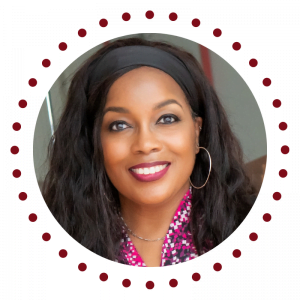
Want Karan to be Your Podcast Guest?
- Blended Workforces & the Gig Economy
- Critical Execution Tactics of High-performing Leaders
- Entrepreneurism & Leading Your Business
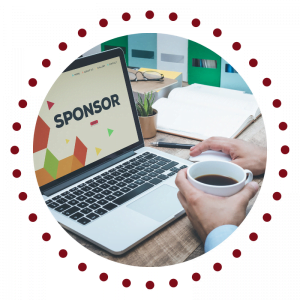
Want to be a Podcast Sponsor?
All sponsorships come with a featured spot on show notes pages.
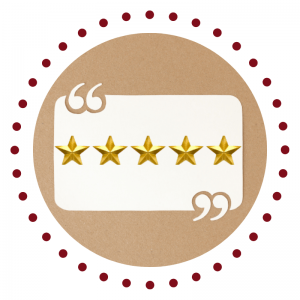
Like the Show? Please Leave a Review
If you like the show, it would mean the world to her if you left a quick review.
Your word is golden, so a HUGE thank you in advance!

#KeepInTouch
via our podcast alerts
Subscribe now to discover why thousands of monthly listeners who are passionate about doing their best work prioritize time each week to listen to the Blended Workforces @Work podcast.
#AboutSDL
#WhereToFindUs
MAILING
4480-H South Cobb Drive
PMB 219
Smyrna, GA 30080
PHYSICAL
2121 NewMarket Parkway
Ste. 108
Marietta, GA 30067
#ContactOptions
Customer Service Email:
service@shockinglydifferent.com
Call or Text:
770-384-1103
#Office Hours
MON-FRI
8:30 AM – 6:30 PM
Weekends By Appointment


